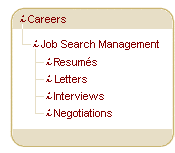I do not have experience in any kind of negotiations. I am worried that I might say something that would be considered unreasonable. How do get I over this fear?
This is not an uncommon feeling towards negotiations. So you are in good company. Here are some things you can do to overcome your hesitation.
The art of negotiation is an acquired skill. You can learn it. You can practice with someone who has been through the process a few times. As they say, practice makes perfect. Well you don't need to be perfect, just comfortable.
Keep in mind that if you think you might be unreasonable, you probably are. Think through what you really want and what kinds of compensation packages would be reasonable and acceptable. The compensation you are seeking should be consistent with your market value; that is, what the marketplace is offering, generally speaking, for someone with your background. You can research this information online, in the library, or by talking to others with similar background.
Do not feel pressured to say Yes or No on the spot. Negotiations are about exploring the desires and constraints of each party, and formulating acceptable outcomes. After negotiations, but before giving a definite response, consult friends, family, and colleagues for advise and counsel.
How and where do I begin?
How about beginning with a hello and the usual pleasantries! The good news is that you can plan and practice how you would begin your conversation. You must communicate your interest in the position, and that while there may be differences relative to the offer, these differences, you believe, are surmountable through fair and candid discussion.
I was expecting $x in salary but they offered only $y. What should I do?
First and foremost, you must determine if your salary expectations are reasonable. It would be reasonable for you to expect the market rate for your skills. You can communicate your expectations to your prospective employer. Hopefully, the negotiations would then begin. Depending on the employer's response, you can choose to accept the offer (or revised offer) on the table or go elsewhere. Our suggestion would be to not focus solely on salary, but to also negotiate on other elements of compensation, such as signing bonus, annual bonus, vacation, and benefits, etc., to come up with a package that is acceptable to both sides.
All my friends with similar backgrounds are getting signing bonuses, but my prospective employer says that it is not possible. What should I do?
Again, look at the overall compensation package. Negotiate on other elements of the package. Better compensation on some other elements of the package may still make it an attractive package, albeit without the signing bonus.
My prospective employer does not offer a relocation package. But it is really hard for me to afford this expense. What should I do?
Sometimes our own constraints, at some points in life, may inhibit us from having exactly what we want. You can ask your employer for help, such as giving you an advance on your salary for one or two months. If that help is not forthcoming, you make ask your bank, friends, or family to help you with the move. If none of this is doable, sad to say but you may have to forego this opportunity.
I have talked to my employer 3 times since I received the initial offer. We have been talking but I do not believe that we are making significant progress. I am beginning to feel that we are wasting each other's time. What should I do?
We agree that perpetual negotiations without progress are a waste of time. You have to judge for yourself as to how badly you want this job and what other choices you have. Depending on your situation, your next moves could range anywhere from continuing on the current course to making the final offer of what is minimally acceptable to you. Then of course you will have to live with the consequences.
I accepted a negotiated offer in the heat of negotiations. Now I have second thoughts about it. What should I do?
We can not recommend that you go back for further negotiations, once you have accepted the offer. Going back on your word is not very professional and it is not ethical. Your word is worth what you are. Our advice would be to join the company, under the terms of the negotiated job offer. Then work within the company to improve the terms of your employment. If we were advising the employer, we would recommend that they not hire someone who has gone back on his/her word. How can you rely on an employee who does not keep his/her word!
Is it appropriate to ask the prospective employer to have a friend join me during the negotiations?
No, it is not! The employer would not be too thrilled with the prospect of hiring an employee who needs help from someone else when his/her job really depended on it.

 Careers
Careers



